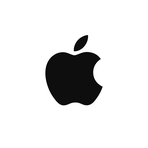The Struggles of AI Gadgets: A Tale of Price Cuts and Production Cuts
October 26, 2024, 5:28 am
In the world of technology, innovation often dances on a razor's edge. Two recent stories illustrate this precarious balance: Humane's AI Pin and Apple's Vision Pro. Both products, born from ambition, now face harsh realities.
Humane, a startup founded by former Apple employees, recently slashed the price of its AI Pin from $700 to $500. This move comes after a rocky launch in April 2024. The AI Pin, a gadget designed to be worn on clothing, has no display. Instead, it relies on voice commands and gestures. It’s a sleek device, powered by a Snapdragon processor, capable of making calls, processing payments, and capturing photos.
However, the initial excitement has fizzled. Humane sold about 10,000 units, far from its goal of 100,000 in the first year. By August, returns began to outpace sales. Users were left with 7,000 to 8,000 devices. The market response has been lukewarm at best. Critics and users alike have expressed disappointment.
To sweeten the deal, Humane introduced a 90-day return window. Buyers can test the AI Pin without the burden of a subscription fee for the first month. Yet, the question lingers: will this be enough to revive interest?
In contrast, Apple’s Vision Pro faces its own storm. Launched in February 2024, the mixed-reality headset quickly attracted attention. But the allure faded as sales plummeted. With a starting price of $3,500, it’s a luxury item. Competing products, like Meta's Quest 3, offer similar experiences for a fraction of the cost—just $500.
Reports indicate that Apple has drastically cut production of the Vision Pro. Component suppliers suggest that the company may halt production of the current version by year’s end. Apple had initially planned to manufacture between 500,000 and 600,000 units. However, as of May, one supplier stopped making components altogether.
The tech giant is not just sitting idle. Rumors swirl about a more affordable version of the Vision Pro, set to launch next year. This new model aims to capture a broader audience, offering fewer features at a lower price. Meanwhile, the development of a more advanced version has been shelved.
Both Humane and Apple are navigating turbulent waters. They face a common enemy: consumer expectations. In a world where technology evolves at lightning speed, users demand more for less. The AI Pin and Vision Pro, once beacons of innovation, now struggle to find their footing.
Humane’s gamble on the AI Pin was bold. The concept of a wearable AI assistant is intriguing. Yet, without a display, it risks being perceived as a gimmick. Users want seamless integration into their lives. They crave devices that enhance their daily routines, not complicate them.
Apple, on the other hand, has a reputation to uphold. The Vision Pro was marketed as a game-changer in mixed reality. However, its price tag alienated many potential buyers. The tech landscape is littered with high-priced failures. Apple must tread carefully.
The market is unforgiving. It rewards innovation but punishes missteps. Both companies are learning this lesson the hard way. Humane’s price cut may attract some curious buyers, but it’s a desperate move. The AI Pin needs more than a lower price to succeed. It requires a compelling reason for users to embrace it.
Apple’s situation is equally precarious. The Vision Pro could redefine how we interact with technology. Yet, if it remains a luxury item, it risks becoming a niche product. The tech giant must balance innovation with accessibility.
In the end, the stories of Humane and Apple serve as cautionary tales. They remind us that even giants can stumble. The road to success is fraught with challenges.
As the tech landscape evolves, consumers will continue to seek value. They want devices that enhance their lives without breaking the bank. The future of AI gadgets hinges on this delicate balance.
Humane and Apple are at a crossroads. They must adapt or risk fading into obscurity. The clock is ticking. The market waits for no one.
In this fast-paced world, innovation is not enough. Companies must listen to their customers. They must understand their needs and desires. Only then can they hope to thrive.
The fate of the AI Pin and Vision Pro hangs in the balance. Will they rise to the occasion or become mere footnotes in tech history? Only time will tell. But one thing is certain: the journey is far from over.
Humane, a startup founded by former Apple employees, recently slashed the price of its AI Pin from $700 to $500. This move comes after a rocky launch in April 2024. The AI Pin, a gadget designed to be worn on clothing, has no display. Instead, it relies on voice commands and gestures. It’s a sleek device, powered by a Snapdragon processor, capable of making calls, processing payments, and capturing photos.
However, the initial excitement has fizzled. Humane sold about 10,000 units, far from its goal of 100,000 in the first year. By August, returns began to outpace sales. Users were left with 7,000 to 8,000 devices. The market response has been lukewarm at best. Critics and users alike have expressed disappointment.
To sweeten the deal, Humane introduced a 90-day return window. Buyers can test the AI Pin without the burden of a subscription fee for the first month. Yet, the question lingers: will this be enough to revive interest?
In contrast, Apple’s Vision Pro faces its own storm. Launched in February 2024, the mixed-reality headset quickly attracted attention. But the allure faded as sales plummeted. With a starting price of $3,500, it’s a luxury item. Competing products, like Meta's Quest 3, offer similar experiences for a fraction of the cost—just $500.
Reports indicate that Apple has drastically cut production of the Vision Pro. Component suppliers suggest that the company may halt production of the current version by year’s end. Apple had initially planned to manufacture between 500,000 and 600,000 units. However, as of May, one supplier stopped making components altogether.
The tech giant is not just sitting idle. Rumors swirl about a more affordable version of the Vision Pro, set to launch next year. This new model aims to capture a broader audience, offering fewer features at a lower price. Meanwhile, the development of a more advanced version has been shelved.
Both Humane and Apple are navigating turbulent waters. They face a common enemy: consumer expectations. In a world where technology evolves at lightning speed, users demand more for less. The AI Pin and Vision Pro, once beacons of innovation, now struggle to find their footing.
Humane’s gamble on the AI Pin was bold. The concept of a wearable AI assistant is intriguing. Yet, without a display, it risks being perceived as a gimmick. Users want seamless integration into their lives. They crave devices that enhance their daily routines, not complicate them.
Apple, on the other hand, has a reputation to uphold. The Vision Pro was marketed as a game-changer in mixed reality. However, its price tag alienated many potential buyers. The tech landscape is littered with high-priced failures. Apple must tread carefully.
The market is unforgiving. It rewards innovation but punishes missteps. Both companies are learning this lesson the hard way. Humane’s price cut may attract some curious buyers, but it’s a desperate move. The AI Pin needs more than a lower price to succeed. It requires a compelling reason for users to embrace it.
Apple’s situation is equally precarious. The Vision Pro could redefine how we interact with technology. Yet, if it remains a luxury item, it risks becoming a niche product. The tech giant must balance innovation with accessibility.
In the end, the stories of Humane and Apple serve as cautionary tales. They remind us that even giants can stumble. The road to success is fraught with challenges.
As the tech landscape evolves, consumers will continue to seek value. They want devices that enhance their lives without breaking the bank. The future of AI gadgets hinges on this delicate balance.
Humane and Apple are at a crossroads. They must adapt or risk fading into obscurity. The clock is ticking. The market waits for no one.
In this fast-paced world, innovation is not enough. Companies must listen to their customers. They must understand their needs and desires. Only then can they hope to thrive.
The fate of the AI Pin and Vision Pro hangs in the balance. Will they rise to the occasion or become mere footnotes in tech history? Only time will tell. But one thing is certain: the journey is far from over.


